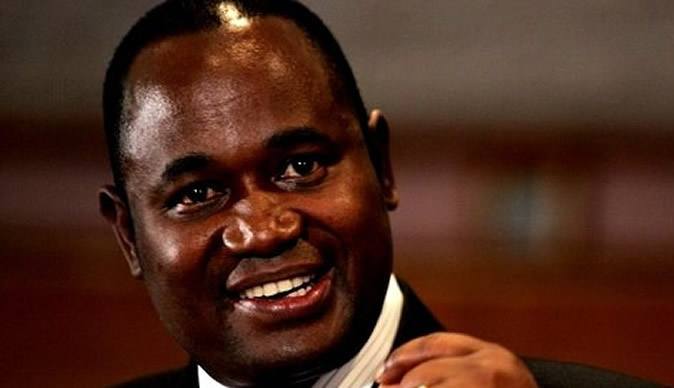
HAD it not been for the media, Gideon Gono would have quietly left the Reserve Bank of Zimbabwe (RBZ) unnoticed, a far cry from the pomp and fanfare that greeted his appointment as governor 10 years ago.
BY NDAMU SANDU
In 2003, it took Gono 18 days to present his maiden monetary policy statement. Yesterday however, he left the bank on a low, having failed to present the statutory mid-term review that was due at the end of July amid indications that Treasury was still to approve the statement.
Just some years ago, Gono would straddle across ministries after he was given carte blanche to fix the economy.
Whether he was given the mandate to override ministries or that the said ministries had abrogated their duties, would never be known. What is in the public domain is that Gono became the face of government and brickbats were directed at him.
Gono declared inflation number one enemy and by the end of 2007, the dragon was spiralling out of control with people failing to withdraw their money from banks.
He said cash barons, among them politicians and businesspeople, were holding on to Z$65 trillion out of the Z$67 trillion in circulation.
“I know three quarters of them but professional ethics do not allow me to name them . . . If challenged I would name them,” Gono said then.
- Chamisa under fire over US$120K donation
- Mavhunga puts DeMbare into Chibuku quarterfinals
- Pension funds bet on Cabora Bassa oilfields
- Councils defy govt fire tender directive
Keep Reading
Gono had responded to the cash crisis by chopping off zeroes from the currency. This failed to work as they multiplied overnight. In total he chopped off 25 zeroes but still the money was worthless. The largest denomination under the local currency era Z$100 trillion was rejected the day it was launched.
While on one hand, Gono was chopping off the zeroes, on the other hand, the printing press was kept busy financing interventions in various sectors of the economy.
The activities outside the budget (quasi-fiscal activities) were done, when by the stroke of a pen, government would order the bank to finance national commitments.
Quasi-fiscal activities were undertaken by RBZ in terms of sections 6 and 7 as read with section 8 of the RBZ Act. The sections were scrapped when the Act was amended in 2009.
Gono defended the activities, lashing at critics who he accused of “being keen on blind orthodoxy or simply being devoted to perpetual criticism of modest efforts by those individuals and institutions working to make a positive difference”.
Quasi-fiscal measures meant to boost production: Gono
Gideon Gono said quasi-fiscal measures were necessitated by a complete “abrogation of duty by some of the responsible government ministries, boards and management teams at some of the parastatals and local authorities”.
“Instances where some of these entities had gone for many years without a shred of audited sets of accounts reflects just but one example of this unfortunate state of affairs that was fast turning into a plague,” Gono said at the time.
He rolled out the Productive Sector Finance Facility (PSF) to assist companies in all sectors of the economy in a bid to boost production. Companies would access cheap funding to boost production.
The Agriculture Sector Productivity Enhancement Facility (Aspef) was to follow. Then there were the Parastatals and Local Authorities Re-orientation Programme (Plarp), Basic Commodities Supply Side Intervention (Bacossi) — all designed to provide cheap funding.
Because not every sector accessed the money, the programmes didn’t work out according to plan as companies would buy expensive inputs from other sectors that were not covered, which did not help in reducing the prices.
In the end RBZ got engaged in non-productive sector financing.
Gono’s tenure failed to address the balance of payment position which had deteriorated.
The negative balance of payment position impacted on inflation and currency.
Unstable currency plus inflation resulted in a black market. The prevalence of the black market was as a result of rational expectation as people hedged against other currencies.
When Gono took over the reins, he tightened liquidity support to banks saying it would only be availed to solvent and viable banks and where there was no evidence of imprudent behaviour. Bankers said the crisis in 2004 was partly caused by the central bank’s management of liquidity.
It was under Gono’s watch that the local currency was buried. While the writing was on the wall on the collapse of the Zimbabwean dollar, quasi-fiscal activities and hyper-inflation quickened its demise.
Gono was to make amends by officially introducing dollarisation as a response to the challenges that engulfed the economy.
He introduced the Foreign Exchange Licensed Warehouses and Retail Shops (Foliwars), Foreign Exchange Licence Oil Companies (Felocs) and Foreign Exchange Licensed Outlets for Petrol and Diesel (Felopads) to make basic commodities available.
Gono is however credited with ensuring that the country remained a member of the International Monetary Fund after making a huge payment a week before the executive board of the global lender was to meet and decide on the future of Zimbabwe.
Under Gono’s extraordinary measures, TelOne avoided a shutdown after it paid a US$13 million debt to ING. Failure to settle the debt would have led to an economic blackout with business grinding to a halt due to paralysis of telecomms in Zimbabwe save for terrestrial links to the region.
Gono instilled discipline in the financial sector by reining-in asset managers whom he said represented an “accident in waiting”.











